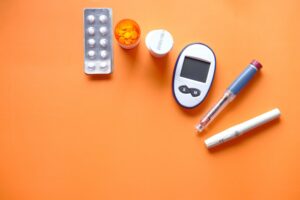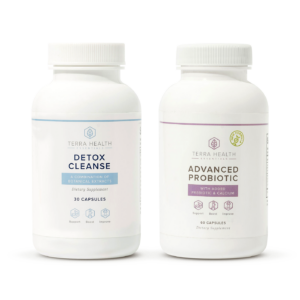aAre you listening to your gut? Those gurgling noises that interrupt that awkward silence at dinner might be trying to tell you something, embarrassment aside! Stomach bloat, fatigue, indigestion, depression, chronic illness, or a range of other health issues, could all be originating from an unhealthy gut.
Recent studies have even associated bad gut health with cancer and autoimmune diseases. Once you know what to watch out for, you can start to heal your unhealthy gut and minimize all of these risks substantially.
So how do you find out if your gut is the main culprit of your health issues? We’ve been looking into this for a while and the following signs seem to be the most indicative of a gut that is screaming out for attention.
Nausea/Stomach-ache (basically an “upset tummy”)
Gas, bloating, heartburn, constipation, diarrhea, are all associated with an unhealthy gut. An imbalanced gut will make it more difficult to process food and eliminate waste. If you feel nauseous or bloated soon after eating, there’s something going on with your gut. Especially if your bowel habits aren’t exactly habitual either.
Fatigue and Insomnia
Fatigue and insomnia are often related to poor gut health. It starts with insomnia or simply poor sleep. This then leads to chronic fatigue as a result. A lot of this is because when your gut is suffering it produces less serotonin – a “feel good” hormone that also affects sleep. When you don’t have enough of this hormone in your system, it can cause massive sleep disturbances.
The role that serotonin plays in gut health is why many practitioners recommend an antidepressant medication called SSRIs. SSRIs increase the amount of serotonin in your system. Makes sense, right?
When your gut produces more serotonin, you sleep better, and your gut has a chance to heal. Unfortunately, healthcare providers don’t always explain this very well to patients. Patients tend to hear the word “antidepressant” and refuse to take it due to the unfortunate stigma still attached to mental health. The reality is that SSRIs CAN help to increase your serotonin, increase your sleep, and heal your gut. Their mood-boosting qualities are a bonus too!
If you’d prefer to take a more natural approach to increase your serotonin, eating a high-fiber diet can help to fuel healthy gut bacteria in your diet. Adding probiotic supplements can also work wonders.
Skin Problems
If you’re suffering from problems with your skin such as eczema, this may be related to an unhealthy gut. When inflammation occurs in your gut (usually due to a poor diet or food allergies), it can cause certain proteins to “leak” into the body. This is referred to in the medical field as Leaky Gut. When this happens, these proteins can irritate the skin and lead to conditions as severe as eczema amongst other symptoms.
 Diabetes
Diabetes
This is a big one. Recent research has shown that your microbiome health can indicate whether or not you have type two diabetes. Russian researchers studied the differences in changes of microbes in the large intestine and you can learn more about their findings between gut bacteria and type two diabetes in the Journal of Endocrinology Connections.
The study links the presence of three specific bacteria types, Blautia, Serratoaoa, and Akkermansiato the level of glucose intolerance in your system. All of these bacteria types are present in healthy people. But the study found that they greatly increase in number in instances where diabetes is present.
“The scientists concluded that one possible cause and effect between intestinal bacteria and diabetes is that certain bacteria incite an immune response. Within the intestinal bacteria population, there are microbes that form toxins that enter the gut and then cause inflammation throughout the body, including liver and fat cells that can affect overall metabolism and insulin sensitivity.” – Journal of Endocrinology Connections
Food Intolerances
Food intolerances differ from food allergies in that intolerance is a difficulty in digesting certain foods. Whereas an allergy is a result of an immune system reaction to specific foods.
Poor-quality gut bacteria trigger food intolerances, which can cause uncomfortable and painful symptoms such as flatulence, bloating, abdominal pain, gas, and nausea.
Improper breakdown of food in the gut can cause fermentation and lead to the production of gas, making it an indicator of a food intolerance. This is usually because your body doesn’t have sufficient acid or an imbalance of bacteria. As a result, many people have adopted a gluten-free diet who aren’t actually Celiac. They still have to deal with these unpleasant symptoms (albeit not to the same degree) due to their food sensitivity.
Dairy is another food that people are often intolerant to. Lactose intolerance has become increasingly prevalent in recent years. The best way to deal with these intolerances is to avoid trigger foods where possible. Also add digestive enzymes to your diet to help with digestion of the foods causing an issue, i.e. a lactose supplement.
 Are You Displaying any of these Signs or Symptoms?
Are You Displaying any of these Signs or Symptoms?
If you’re experiencing any of these signs or symptoms, now is the time to take action. You can heal your gut but you have to stop doing damage to it first!
Our fast-acting Gut Reset Kit will detoxify your colon, increase your energy levels, restore balance in your gut, and optimize your digestion to reduce cramping, pain, and bloating.
AND we’re giving our loyal blog readers a special 30% discount on the Gut Reset Kit right now! To avail of this discount just add the code: guthealthsecrets30 when placing your order.
Don’t forget to follow us on Facebook where you can contact us anytime with questions or a customized treatment plan!


